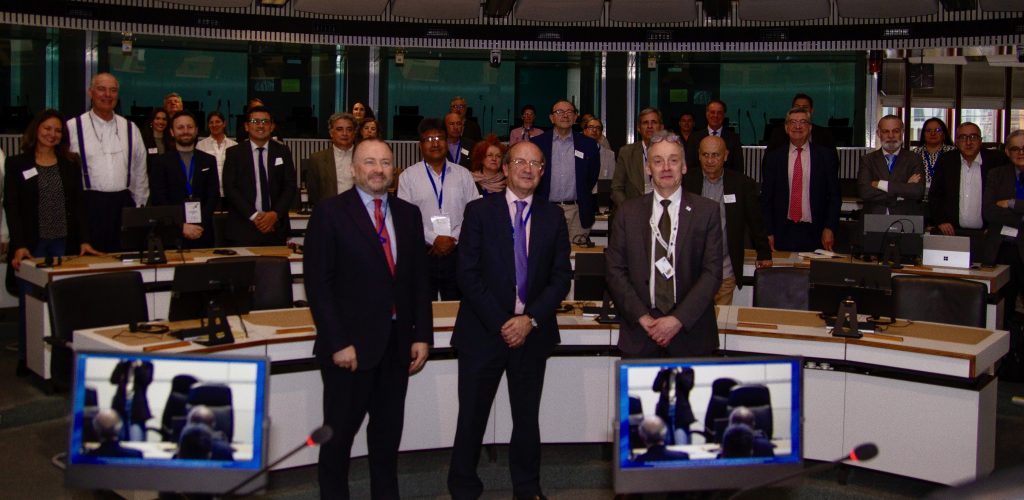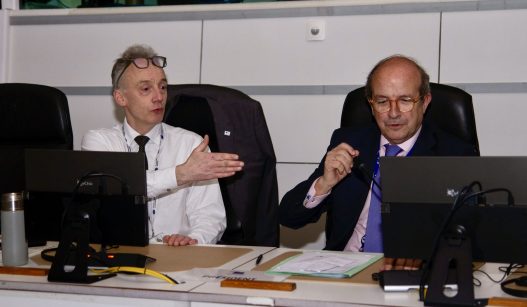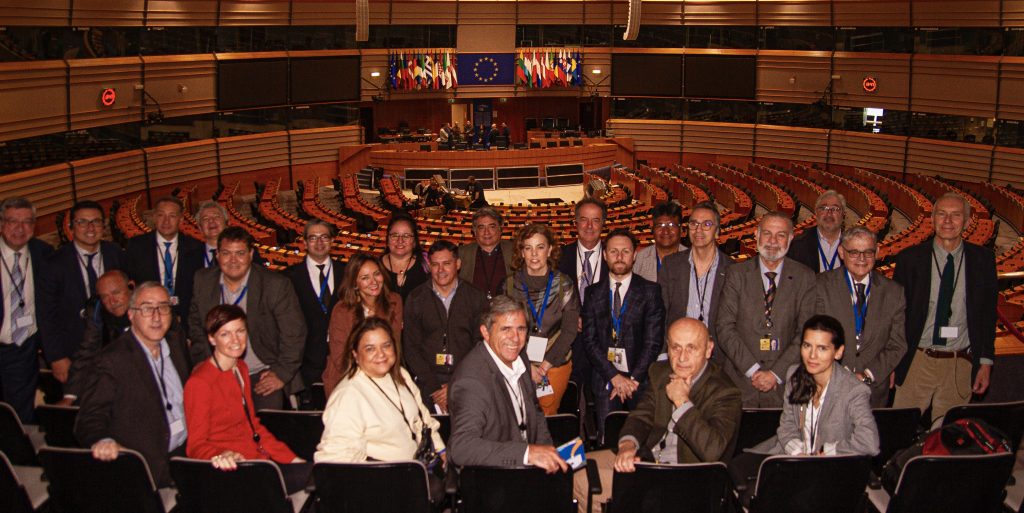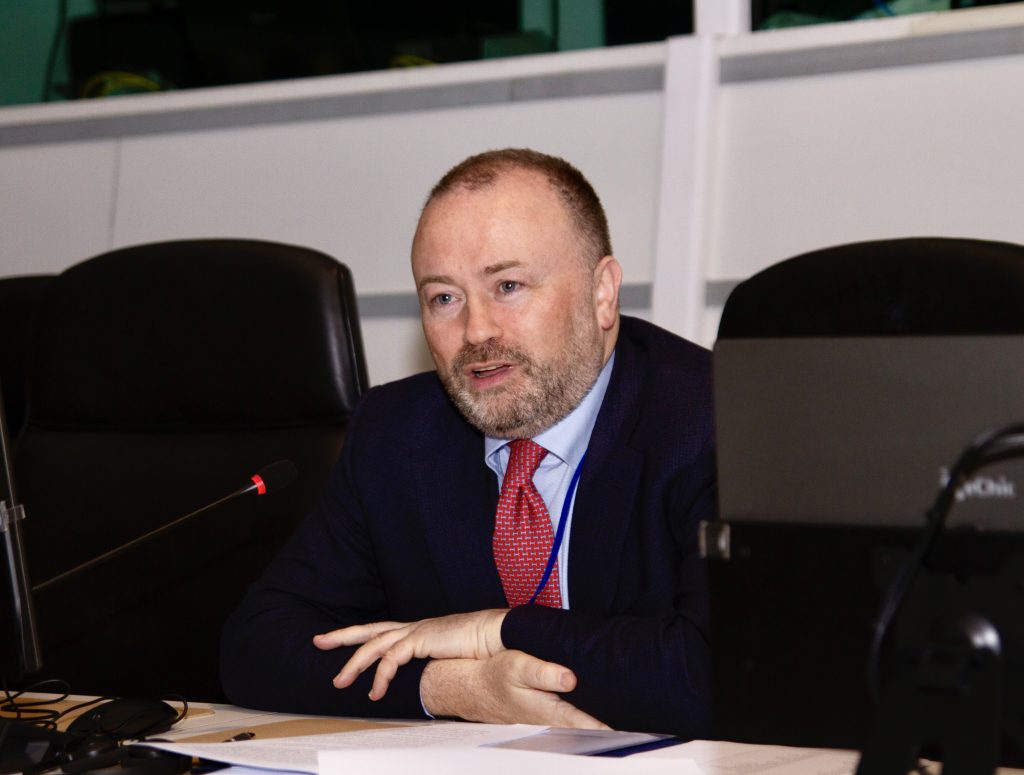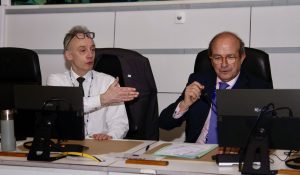
‘THE EUROPEAN IA LAW CAN BE IMPROVED': DANIEL CALLEJA, DIRECTOR OF THE COMMISSION'S LEGAL SERVICE
The irruption of Artificial Intelligence led the European Union to issue the first law in the world to regulate the scope of this technology. However, media organizations have pointed out that the law does not adequately protect the copyrights of news companies and journalists.
Daniel Calleja, director general of the European Commission’s Legal Service, a key institution in the drafting of all EU laws, recalled that media outlets have complained, in particular, about the lack of recognition of copyright on information that uses generative AI to train itself and then provide its services to the public.
The complaint is included in the Brussels Declaration, a text that is the result of the debates developed in the VII Congress of Media Editors of Europe, Latin America and the Caribbean, held from March 18 to 21 in Madrid and Brussels.
There it is mentioned that “there has been a serious regulatory negligence, because, although digital news publishers represent the essential prerequisite for the contribution of verified AI training content, the European regulator has left them out of the value chain generated by AI systems. (…) Only a fair remuneration will allow digital news publishers to invest in the creation of verified content”.
Calleja, precisely, intervened during the VII Congress of Publishers and there he said that in this first standard on AI it has not been possible to address all the issues, such as copyright and generative AI.
These pending issues, he said, should continue to be the subject of debate to improve the legislation. He invited the media to make their approaches to the European Commission.
He also indicated that the issue of media copyright is the subject of litigation in the courts, from where these concerns can be addressed and a vision of where updates in the law can be directed.
NEW LAWS FOR A DIFFERENT WORLD
The planetary situation has demanded an update of the European project and the regulations that accompany it, explained Daniel Calleja. He spoke on the third day of the VII Congress of Publishers of Europe, Latin America and the Caribbean. His presentation took place on March 20, 2024 at the Committee of the Regions building in Brussels, Belgium, where some 50 editors from a similar number of media, the most prestigious from both continents, attended.
These new European objectives must go hand in hand with laws. “The European Union (EU) has no armies or police. Our weapon is the rules we adopt and which are applied uniformly,” Calleja said.
The Legal Service that he directs, precisely, does all this legal accompaniment. In addition to representing the EU in litigation, it dictates on the legal documents that are worked on and become laws that the 27 member states must abide by.
WHAT HAS BEEN DONE
According to Calleja, this regulatory architecture made it possible to deal with unprecedented crises. In the five years of Ursula con der Leyen’s mandate at the head of the European Commission – a mandate that is about to end – events have occurred that have changed not only the European panorama.
The first issue was the Brexit process, where there was a difficult legal negotiation, not only to agree on the exit of the United Kingdom, but also on the new relationship to be maintained with that nation from now on.
Then came the pandemic which, among other things, involved a negotiation on behalf of the entire Union for the production of a vaccine and to guarantee equal access to it, “without first and second class citizens,” Calleja emphasized.
And resources had to be channeled immediately for the economic recovery of the countries. All within legal parameters.
Then came the war in Ukraine which, among other things, meant the presence of 4 million refugees requiring assistance.
The war also implied sanctions against Russia, which included the suspension of Russian television broadcasts in Europe. “That was a very important legal debate. Because Europe values freedom of the press, but it was considered that the Russia Today (RT) channel was spreading propaganda, that there was intentional disinformation in the midst of the war. It was 11 hours of intense debate,” Calleja explained. And he continued: “I am proud that our legal system is allowed to debate all that time on freedom of expression and only after that decisions were made. And although in the end it was decided to suspend these broadcasts, it did not prevent RT’s interviews from being aired”.
The dilemmas posed by the dissemination of fake news, surreptitious advertising, the handling of citizens’ personal data, the irruption of generative Artificial Intelligence, led the European Union to propose rules to control and regulate these activities.
The Artificial Intelligence Act, the first of its kind in the world, was issued on March 13, 2024. On the same day, the Freedom of the Media Act was given the green light. And before that, in 2022, with effect from 2023, the Digital Services Act, known as DSA, was issued.
WHAT IS COMING AND THE “BRUSSELS EFFECT”
The new authorities of the European Commission and Parliament, in Calleja’ opinion, will have to pay attention to crucial issues and advocate for the laws that go with them.
In addition to updates to the Artificial Intelligence Act, there are other issues as crucial as defense. That key aspect of the EU, currently, is in the hands of NATO, an organization that is largely dependent on what the U.S. does. The situation with Russia has forced Europe to think about having a defense force of its own, especially in the face of uncertainty caused by situations like the upcoming U.S. presidential election.
The war also opened the debate on the enlargement of the European Union and the time frame for this. The process to include Ukraine and Moldova is still pending.
Recovering competitiveness, considered Calleja, is another objective that will require clear and common rules. Particularly in the area of technology. This requires not only revising aspects of the law on Artificial Intelligence, but also developing a law on chips, that is, on the production of those elements that are at the heart of AI machines.
For Calleja, Europe’s international relations need to be expanded. A more powerful agenda of trade agreements is needed, and issues such as the negotiation with Mercosur, which also represents a regulatory challenge, must be resolved.
The key, he said, is to understand that the European Union is not about political parties, regulations or currency markets, but about people, citizens and their aspirations.
And he is confident that what many know as the “Brussels effect” will continue to happen: that is, that European regulations on issues of global interest will be taken as a reference for the development of laws in other countries and regions of the world.
ABOUT THE COMMITTEE OF THE REGIONS
As mentioned, the activities of the third day of the Congress of Media Editors of Europe, Latin America and the Caribbean took place at the Committee of the Regions in Brussels on March 20, 2024.
Ian Barber, communications director of the Committee, explained that this body is part of the institutional architecture of the European Union and brings together representatives of the regions of each country, including large municipalities such as, for example, Madrid.
This committee does not legislate, but it is an important consultative forum. The rules that are created in the EU are then applied in each region, which has its own particularities. That is why, before laws are enacted, the Committee of the Regions gives its opinion. The documents it generates are mandatory reading in the Parliament, where the EU rules are produced. Its observations are generally accepted.
The Committee is very important for implementing initiatives of the Global Gateway program, one of the cooperation mechanisms that the European Union has for investments, especially in Latin America. This investment program is established on the basis of projects in which cities and regions, both in Latin America and Europe, usually participate jointly.
The activity of the Committee of the Regions can be followed on its web page: https://www.cor.europa.eu/
ABOUT THE EDITORS’ CONGRESS
The VII Congress of Media Editors of the European Union, Latin America and the Caribbean is an event organized by Grupo Prestomedia with the support of EditoRed, the Commission and the European Parliament, Telefónica, Iberia and the Community of Madrid, as well as the collaboration of Universidad Rey Juan Carlos, Turismo de Galicia and Casa de América, and with Prensamedia as editorial partner.
————
This text is free to use. If you use it, please cite EditoRed.
